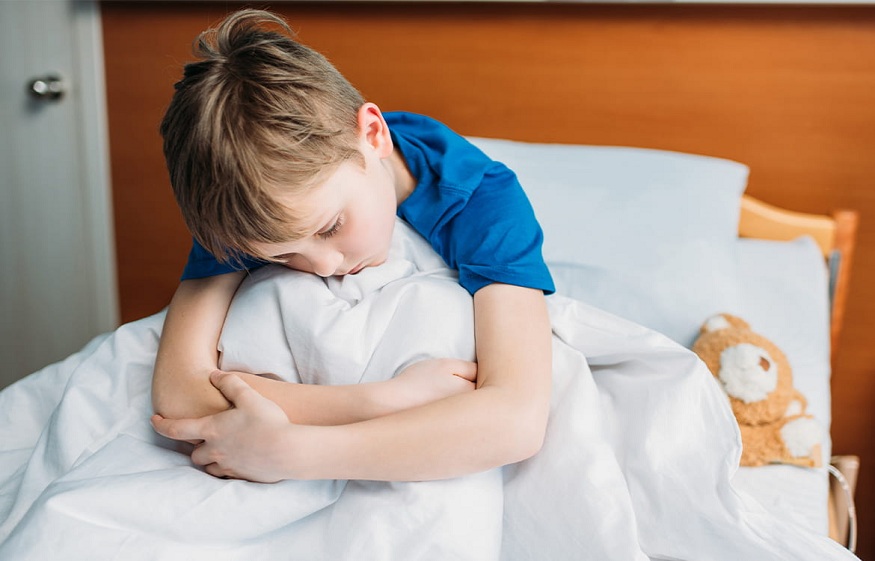
Emotions are a set of human sensations and reactions that aim to give us information about our relationship with our environment. They have evolved together with us, which helps us to better adapt to the reality we perceive, keeps us safe and fosters human relationships essential for the continuation of the species.
It means they are presented according to our needs and not at will. We cannot control its appearance, duration or intensity. Instead, we can learn how to recognise them and relate them to some external or internal stimulus and, from that, be able to express them more assertively.
In the case of Urination trouble in children, emotions exist precisely as in children who do not have this condition. However, their relationship with the environment is different because they face other stimuli; If we want to promote the emotional health of children with Enuresis, it is essential to teach them to work and express their emotions.
Don’t try to control your child’s emotional health.
Therefore, expecting or asking children to manage their feelings can create conflicts and insecurities since we ask them to do something impossible for any human being, even those who think so.
For this reason, we propose to allow you to feel and not judge or devalue your emotion. For example, in the face of the unknown, it is normal to feel fear; in the face of injustice, it is normal to feel anger; in the face of success, it is normal to feel joy, etc. However, recognising that your daughter / or has no control over what she is feeling will be of great help for you and her since they will have gained the first step of Emotional health, that is, not repressing her emotions, which brings us to point number two.
Express your emotions
The little ones learn by example and repeat actions and communication habits; therefore, most of their efforts reflect what they see at home, with their parents, caregivers or guardians. The best way to teach children with Enuresis to express their emotions healthily is by expressing their feelings assertively and not impulsively.
If you feel happy, share that emotion; if you are angry, ask for space to calm down; if you feel afraid, express what scares you. In this way, your daughter / or can recognise the benefits of assertive communication and learn to communicate her emotions.
Allow the full spectrum of emotions
Emotional health implies feeling the six emotions that exist: joy, anger, sadness, fear, disgust and surprise.
Know what each one is for and use that information to improve our relationship with the environment. Requiring your child always to be happy, not to be afraid, not to get angry, not to cry or to like things that cause displeasure will only create in them a feeling of constant disappointment and the idea that Well-being implies pleasing others.
Finally, emotional health is the basis of effective work and social relationships. Recognising and using our emotions allows us to communicate better and thrive in whatever environment we choose.
The stories narrate surprising, wonderful or familiar events that become great deeds that have been part of humanity since its origins.
In the Middle Ages, the stories of the saints were used as testimonies of virtuous lives to ensure that people would copy these actions. Over time, the stories of the saints were transformed and replaced by legends where ordinary people learned a lesson through spiritual experiences.
Later these stories were replaced by fantastic events with mythological characters in natural settings. Fantasy literature, such as novels and stories, emerges from this principle.
Take your child to the first stage of sleep.
With their long historical journey, some of these stories have been transformed into quiet narratives that show magical settings and humanoid characters who transmit peace and harmony with their behavior. These stories are characterised by repeating an argument rhythmically, almost like a song, and have a happy ending that produces calm. In other words, because of the way they are written, they fulfil the objective of reassuring children until they take them to the first phase of sleep.
Taking advantage of this feature, they are currently used to help the little ones fall asleep and create a space for peaceful coexistence between mom and dad and their children; in the case of children with Enuresis, an effective tranquiliser to Avoid anxiety at bedtime and help them distract their minds with the exploits of the most varied and endearing characters.

 The Role Of General Dentists In Implant Dentistry
The Role Of General Dentists In Implant Dentistry  The Role of Obstetricians and Gynecologists in Breast Cancer Screening
The Role of Obstetricians and Gynecologists in Breast Cancer Screening  Post Pregnancy Weight Loss: How Clinics Can Help
Post Pregnancy Weight Loss: How Clinics Can Help  How Microbes in the Mouth Are Being Linked to Overall Gut Health?
How Microbes in the Mouth Are Being Linked to Overall Gut Health?  Podiatry And Veganism: Impact Of Diet On Foot Health
Podiatry And Veganism: Impact Of Diet On Foot Health  Reconstructing Confidence: The Impact Of Burn Reconstruction Surgery
Reconstructing Confidence: The Impact Of Burn Reconstruction Surgery